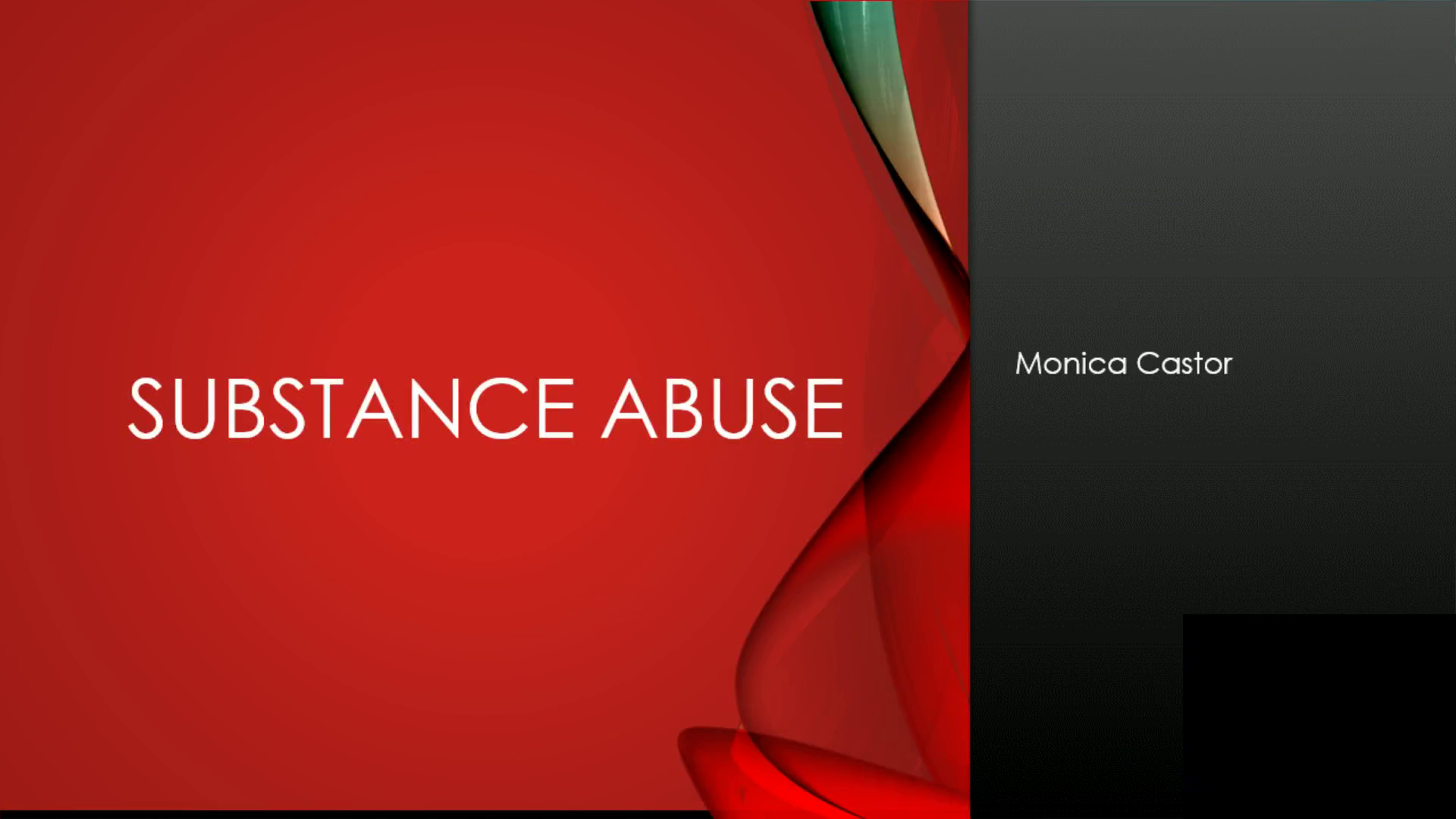Scene 1 (0s)
Monica Castor. SUBSTANCE ABUSE. CBU. KIN 301.
Scene 2 (14s)
What is SUBSTANCE ABUSE?. Substance abuse comes in different forms it can be seen in alcohol addiction and drug addiction. Substance abuse is when a person consume too much of a a certain item which can cause them harm. It can damage them emotionally, physically and impact their social life. Drug abuse does not only include weed, heroin but prescription drugs count as well. “Alcohol is considered to be one of several drugs of abuse.” (Griffin JB , pp. 1).
Scene 3 (39s)
Who develops substance abuse. Substance abuse is developed by those who excessively use a certain item. It can be developed by anyone who does not have a limit and who does not know how to control themselves. Substance abuse can be seen in both men and women, and it can be seen in adults as well as teens..
Scene 4 (58s)
How does it form. Substance abuse forms when a person drinks a high amount of alcohol for a long period of time. It is also formed by a using drugs with no limit.
Scene 5 (1m 12s)
What substance are most abused. Alcohol Marijuana Pain killers Depression pills Anxiety pills Opiates Morphine Cocaine (Johns Hopkins, pp. 1).
Scene 6 (1m 32s)
Substance abuse vs addiction. Some people may think that substance abuse is the same as addiction, but it is not the same. Addiction is more advance than substance abuse once a person develops addiction it is hard to get clean not impossible, but it is a long and hard process. Substance abuse is curable and can be stopped, the individual can choose to quit abusing substance and have a better lifestyle..
Scene 7 (1m 59s)
Preventing substance abuse. Some ways that drug abuse can be prevented is by having friends or family members that check on you daily if not weekly to see how you are doing emotionally. Another thing one can do is join support groups if they feel like they need people to talk to who can encourage them to make a change in their lifestyle. Also knowing the limit, a person has for tolerance would be good too since they would know not to over pass themselves..
Scene 8 (2m 26s)
Who can help?. Substance abuse and mental health services administration can help someone who is struggling with substance abuse, they are opened to help all day every day of the week. They arrange treatments plans to help you get better and keep everything confidential. 1-800-662-4357.
Scene 9 (2m 45s)
References. Griffin JB JR.. Substance Abuse. In: Walker HK, Hall WD, Hurst JW, editors. Clinical Methods: The History, Physical, and Laboratory Examinations. 3rd edition. Boston: Butterworths; 1990. Chapter 206. Available from: https://www.ncbi.nlm.nih.gov/books/NBK319/ Substance Abuse / Chemical Dependency. Johns Hopkins Medicine. (n.d.). Retrieved March 2, 2022, from https:// www.hopkinsmedicine.org /health/conditions-and-diseases/substance-abuse-chemical-dependency Toumbourou, J. W., Hemphill, S. A., Tresidder , J., Humphreys, C., Edwards, J., & Murray, D. (2007). Mental health promotion and socio‐economic disadvantage: lessons from substance abuse, violence and crime prevention and child health. Health promotion journal of Australia, 18(3), 184-190. World Health Organization. (2005). Promoting mental health: concepts, emerging evidence, practice: a report of the World Health Organization, Department of Mental Health and Substance Abuse in collaboration with the Victorian Health Promotion Foundation and the University of Melbourne. Cook, R. F., & Youngblood, A. (1990). Preventing substance abuse as an integral part of worksite health promotion. Occupational Medicine (Philadelphia, Pa.) , 5 (4), 725-738. Cook, R. F., Back, A. S., Trudeau, J., & McPherson, T. (2003). Integrating substance abuse prevention into health promotion programs in the workplace: A social cognitive intervention targeting the mainstream user..
